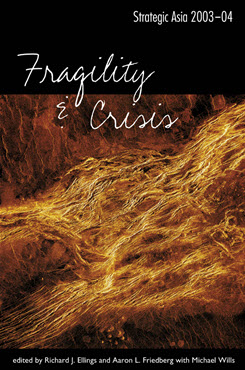United States
U.S. Leadership--Prevailing Strengths Amid Challenges
Emphasis on China and Asia in the national security strategy of the George W. Bush administration gave way to a more reactive and less coherent U.S. approach driven by developments, particularly in Iraq, the war on terrorism, and Korea. U.S. policy can be diverted or challenged in many areas, foreshadowing a somewhat weaker U.S. policy stance in Asia. Given overall U.S. strengths in Asia, however, U.S. officials probably will continue to manage relatively effectively.
Emphasis on China and Asia in the national security strategy of the George W. Bush administration gave way to a more reactive and less coherent U.S. approach driven by developments, particularly in Iraq, the war on terrorism, and Korea. U.S. policy can be diverted or challenged in many areas, foreshadowing a somewhat weaker U.S. policy stance in Asia. Given overall U.S. strengths in Asia, however, U.S. officials probably will continue to manage relatively effectively. The Bush administration has improved relations with the major Asian powers. The United States remains the partner of choice for most Asian governments. If the ongoing North Korean crisis were to combine with other possible significant complications for U.S. policy (e.g., failure in Iraq; U.S. economic downturn; decay in Pakistan, Afghanistan; India-Pakistan, China-Taiwan conflict; major terrorist attack on the United States) it would more seriously disrupt U.S. leadership and stability in Asia.
Strategic Asia
The Strategic Asia annual edited volume incorporates assessments of economic, political, and military trends and focuses on the strategies that drive policy in the region. Learn more about Strategic Asia.


